
Alan Eastman poses a problem for Alex Gilvarry. As self-important as he is self-pitying, and a writer who thinks literature is warfare, Eastman is surely a fool. But how to avoid making him also a caricature?
Gilvarry manages to avoid this, making him a “real person” as well as a buffoon, because he understands that the problem is one of distance—narrator to Eastman; reader to Eastman—and that this problem translates in terms of craft into a question of tone. He is wise to waste no time establishing the kind of distance we’ll be enjoying for the rest of the novel, which begins like this:
Eastman, the timid bastard, look at him! Sat in his reading chair, all worn and tousled, face behind a book (The Metaphysical Poets, an anthology), hiding from a world he had come to fear. The month was May in the year of the polymorphous perverse, 1973. This is Eastman at the beginning of his journey, not the end. And what was he doing? Paralyzed? Hardly. Eastman was cowardly ducking.
Look at him we readers do; we look at his “poor man’s corduroys” and his “well-formed belly, testament to better years,” we look at him moping, at him reading maudlin poetry and doing his back in reaching down to pick up a book. But we’re also here with him in this room, where he is alone, and we have access to his thoughts. We get to point and laugh at this man, but also feel what it’s like to be him as he lies on the floor “riddled with pain” reading a poem called “Mortification.”
Gilvarry has a greater aim with this, though. It’s not just setting up the rules of our interaction with Eastman; it’s also making a point about his sense of self. Throughout the novel, whenever Eastman is feeling something, he’s also looking at himself feeling it and checking how it’s playing with the world. So, for instance, after making a fool of himself confronting his wife Penny’s new lover, he is confused by the world’s aghast response: “Wasn’t what had just happened the sign of a passionate love and someone who cared?” He’s highly aware of himself as an actor on the world’s stage, but he’s never aware of how he’s actually appearing.
Which is how?
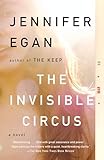
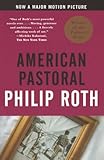
 To answer that, we should first recognize the novel’s literary context. Eastman Was Here takes its place alongside a growing group of books that seek to reappraise “the sixties”—something its promotional material acknowledges. If this tendency began in the mid-1990s, with books like Jennifer Egan’s The Invisible Circus (1995) and Philip Roth’s American Pastoral (1997), it’s developed since then into a veritable mini-genre. 2016 witnessed at least three such novels published: David Means’s Hystopia, Emma Cline’s The Girls, and Hannah Kohler’s The Outside Lands.
To answer that, we should first recognize the novel’s literary context. Eastman Was Here takes its place alongside a growing group of books that seek to reappraise “the sixties”—something its promotional material acknowledges. If this tendency began in the mid-1990s, with books like Jennifer Egan’s The Invisible Circus (1995) and Philip Roth’s American Pastoral (1997), it’s developed since then into a veritable mini-genre. 2016 witnessed at least three such novels published: David Means’s Hystopia, Emma Cline’s The Girls, and Hannah Kohler’s The Outside Lands.

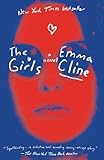
 Eastman Was Here is a ’60s novel, then. But rather than deal directly with the events of the period, Gilvarry’s novel uses Eastman as a prism, so we see the ’60s through this writer’s use of them. In one sense, this means that the ’60 aren’t really that prominent in the book. There are passing references to “[h]ippies, dopers, vets, students, and dropouts”, to “[r]ock and roll, the Kennedys, Vietnam, Watergate” and “the war, the draft, Johnson, Nixon, Kissinger,” but as you can see, these are tossed-out lists, and Eastman’s interests are personal before they are social. That being said, like Kohler’s The Outside Lands, the novel borrows the tripartite structure of Michael Cimino’s film The Deer Hunter (1979): a section at home, before the war; a section “in country,” during it; a section back at home, after the war. But whereas in that film and novel this structure was utilized in the service of showing what the war broke in its protagonists, and the effects of post-war trauma, in Eastman Was Here it is a joke that reveals Eastman’s pretensions. The “in country” section follows him to Saigon, but he never leaves the city, and never actually sees warfare. Instead he mooches around the Continental Hotel, semi-falling in love with Anne Channing, a reporter he knows is much better than him, all the time planning to leave for the north, or for Cambodia, where there is fighting, but never actually going.
Eastman Was Here is a ’60s novel, then. But rather than deal directly with the events of the period, Gilvarry’s novel uses Eastman as a prism, so we see the ’60s through this writer’s use of them. In one sense, this means that the ’60 aren’t really that prominent in the book. There are passing references to “[h]ippies, dopers, vets, students, and dropouts”, to “[r]ock and roll, the Kennedys, Vietnam, Watergate” and “the war, the draft, Johnson, Nixon, Kissinger,” but as you can see, these are tossed-out lists, and Eastman’s interests are personal before they are social. That being said, like Kohler’s The Outside Lands, the novel borrows the tripartite structure of Michael Cimino’s film The Deer Hunter (1979): a section at home, before the war; a section “in country,” during it; a section back at home, after the war. But whereas in that film and novel this structure was utilized in the service of showing what the war broke in its protagonists, and the effects of post-war trauma, in Eastman Was Here it is a joke that reveals Eastman’s pretensions. The “in country” section follows him to Saigon, but he never leaves the city, and never actually sees warfare. Instead he mooches around the Continental Hotel, semi-falling in love with Anne Channing, a reporter he knows is much better than him, all the time planning to leave for the north, or for Cambodia, where there is fighting, but never actually going.

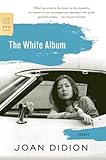 Eastman is famously anti-war, and we are told he was prominent in the protests against it, but the war also presents opportunities. For Eastman, the upheaval of the ’60s is a stage or a backdrop for self-promotion and self-fashioning. It’s the ’60s of Mad Men’s Don Draper, for whom it allowed the possibility to create an entirely new self; in The White Album, Joan Didion wrote that the “sense that the world can be reinvented smells of the Sixties in this country, those years when no one at all seemed to have any memory or mooring.” Eastman hopes to use Vietnam to write “a record of history,” which will advertise his continued relevance, his heroism, and the “passion” Penny no longer sees in him. Eastman wants his book to work like the title of a collection of Norman Mailer’s essays: Advertisements for Myself. All without leaving his hotel room.
Eastman is famously anti-war, and we are told he was prominent in the protests against it, but the war also presents opportunities. For Eastman, the upheaval of the ’60s is a stage or a backdrop for self-promotion and self-fashioning. It’s the ’60s of Mad Men’s Don Draper, for whom it allowed the possibility to create an entirely new self; in The White Album, Joan Didion wrote that the “sense that the world can be reinvented smells of the Sixties in this country, those years when no one at all seemed to have any memory or mooring.” Eastman hopes to use Vietnam to write “a record of history,” which will advertise his continued relevance, his heroism, and the “passion” Penny no longer sees in him. Eastman wants his book to work like the title of a collection of Norman Mailer’s essays: Advertisements for Myself. All without leaving his hotel room.

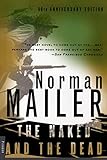 In interviews and promotional materials, Gilvarry has been clear that Mailer was an inspiration for Eastman, and there are many ways Alan is like Norman. There are biographical similarities: Eastman’s first book, The American War, which was a big hit and nearly won him the Pulitzer, detailed his experiences as a soldier in World War II. Stylistically, it sounds nearer to Armies of the Night than The Naked and the Dead: “his original invention (history in a novelistic style) as executed in The American War, but he would be the book’s protagonist, its hero.” Like Mailer, he is keen to create “a new type of journalism” and his trip to Vietnam is powered by his sense of himself as a writer-hero: “He told himself it was newsworthy because he was writing it. That was the story. Himself in Saigon, and his impressions didn’t need to be historically accurate, they just had to be true and somewhat informed. This was a dispatch, a narrative.”
In interviews and promotional materials, Gilvarry has been clear that Mailer was an inspiration for Eastman, and there are many ways Alan is like Norman. There are biographical similarities: Eastman’s first book, The American War, which was a big hit and nearly won him the Pulitzer, detailed his experiences as a soldier in World War II. Stylistically, it sounds nearer to Armies of the Night than The Naked and the Dead: “his original invention (history in a novelistic style) as executed in The American War, but he would be the book’s protagonist, its hero.” Like Mailer, he is keen to create “a new type of journalism” and his trip to Vietnam is powered by his sense of himself as a writer-hero: “He told himself it was newsworthy because he was writing it. That was the story. Himself in Saigon, and his impressions didn’t need to be historically accurate, they just had to be true and somewhat informed. This was a dispatch, a narrative.”
It’s not just biography, though. Eastman, like Mailer, sees life as series of conflicts. It’s not surprising that, like Mailer, he was once “under the spell of boxing” and that he cherishes the “competitive camaraderie” he has with Norman Heimish, a broad-shouldered writer who actually does go to Cambodia and who beat him to the Pulitzer back in the 1950s. At one point Meredith, a publisher and Eastman’s mistress, accuses him of creating an “intellectual Olympics.”
Eastman wants to be a man of action. But because he’s not a tough guy, “even though he would never back down from the chance to prove that he was,” he makes writing and thinking—living, even, as a public intellectual—an action equivalent to war. The day after he announces his intention to go to Vietnam (done to impress, rather than because he actually intends to go), he wakes feeling like a new man:
Something had shifted, altered the atmosphere, and what that was could only be attributed to his announcement the night before. The announcement was action, it was purposeful, reasonable. Whether it was a move in the right direction only time would tell. The forces of his life were always pressed up against the other, tectonic plates of urges.
This is Eastman’s “brain voice”—hyperbolic, narcissistic, and always at the centre of a worldly drama (those “tectonic plates”). For him, writing is assertion and triumph rather than exploration. It’s also a pompous, self-important way of dressing up a concern with his declining virility. He remembers his college days with girls, when he switched from engineering to literature because “when he spoke of literature he became attractive in their eyes…at the mere mention of Dos Passos or Maugham or Hemingway. These were writers, celebrities, thinkers, stars.” Along with Philip Roth, John Updike, and, yes, Norman Mailer, Eastman sounds like one of David Foster Wallace’s Great Male Narcissists; and of course he is the sort of man whose chosen method of suicide is autoerotic asphyxiation (a truly hilarious scene). Anne Channing describes Eastman as “invasive,” but it’s an aggressiveness that’s made from a “mixture of naiveté and hubris.” Eastman is the kind of man who would—who does—explain a woman’s own expertise to her, poorly. “It was his nature to take over an evening or a conversation,” we are told.
Is this satire? And is Mailer the target? He’s the inspiration, but it seems an odd choice to satirize a man not only easily satirizable but who’s also been dead for 10 years. The only way to make it work would be to use it to illuminate our current culture. I don’t think Gilvarry is satirizing Mailer per se, but I do think his book does some of the latter. Eastman craves attention but does not understand (or often even care for) people, and in this it’s hard not to see him as a prototype for the kinds of men that populate Twitter and currently inhabit the White House. Eastman, whose “urges were totalitarian,” is a man-child premonition of the Age of Trump. In his identification of romance with entitlement, Eastman is the man in Bristol, U.K., who recently stirred up the Internet for his “romantic” gesture of playing the piano in a city park until his ex-girlfriend took him back (he stopped when he got punched at 4am). Eastman would approve of this man’s “passion.” For him, actions are always undertaken in order to gain something; he sees love as strategy, as power-play:
Was it his damn career that always interfered with his love life? Certainly, his first marriage succumbed to his literary affairs. Back then the two always seemed to be competing. Now he felt one was going to solve the other. The problem of love could be resolved if his actions showed Penny that he had passion. Passion in his work. Passion by the fistful.
There’s a kind of submerged, filtered, history of the present in Eastman Was Here. I hear something of both the Bush era’s embrace of “black sites” and of the Trump administration’s war on the media in reporters’ dismissals of the daily briefings at the Continental, which are full of nothings: “There is what we know and what they don’t tell us. So we work to find out. And there are the people who don’t want us to find out.” And the novel’s description of Vietnam War protestors reminds me of Occupy Wall Street:
A protest was in progress at the foot of the park…Some of them, it seemed, had been camping out in the park. The nights had been warm enough. But this sudden encounter with youth gave him an intimation of tiredness. He could smell their fatigue through the musk and body odor and marijuana smoke. This generation was tired. They had been spit out, abused…Still, they were determined to keep their lives.
Even more, we recognize Eastman’s understanding of literature in terms of celebrity. Boorishly pontificating to Channing, he lays out his modus operandi:
I have the hindsight of almost twenty-five years in this business. Not the news, but in literature. And I did ask for all this success. I made it happen because that’s what I wanted and I wouldn’t settle unless I was considered one of the best writers in America. I know that sounds brash, egotistical, competitive, narcissistic, even pompous. But to be called any name you have to be somebody first. I needed to be a little of all of those things. If you have ideas that are controversial people remember them.
For Eastman, self-awareness is unimportant. Here he is admitting—or “confessing” as he actually puts it—that his personality is a sham taken on in order to gain literary success. He’s a proto-Trump here not because his performance is at odds with a sincere core, but because any core is irrelevant if the “brash, egotistical, competitive, narcissistic, and pompous” bluster is convincing enough to get you noticed and get you on TV. This is exactly what Channing realizes:
he was a celebrity writer, shooting his mouth off about feminism and race on television, and yet he retained a sort of dignity that followed men like Eastman around. It was unfair, really, when she thought about the man and his reputation. How a man could say so many stupid things and be exonerated after a short commercial break.
This reality is what allows Eastman to constantly feel remorse for his awful behavior but never actually need to change it. He doesn’t need to be self-aware to succeed, and indeed the only time he ever shows a glimpse of it is when he feels threatened by a woman like Channing, who is a better reporter and war writer; this knocks his sense of his own virility, which is expressed and measured through being “one of the best writers in America.” 1973 doesn’t look too different from 2017.









